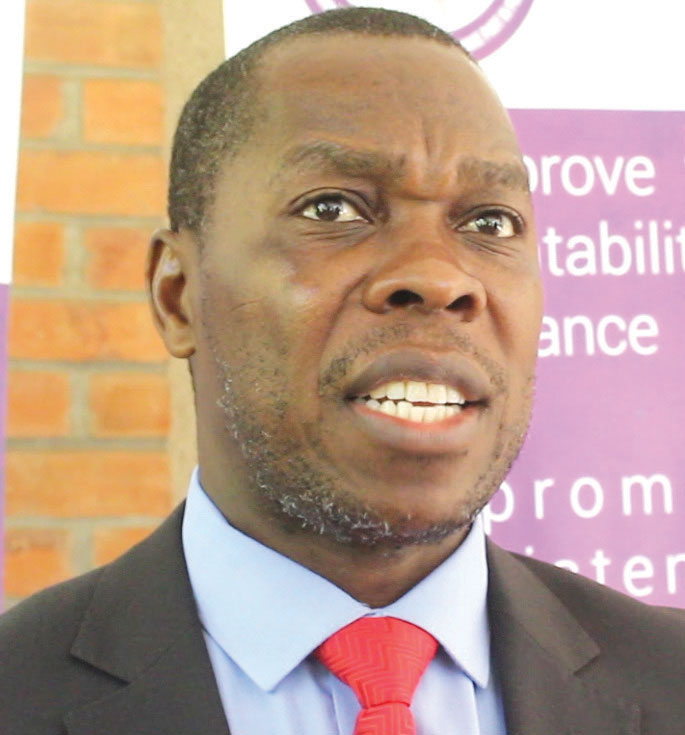
Ayear after the High Court ruling that nullified Malawi’s presidential elections, the Malawi Police Service is investigating and prosecuting cases of electoral fraud – with the focus on identifying those who supplied and used the correction fluid Tippex to alter election figures.
Twelve people, who worked as presiding officers from Lilongwe City Centre Constituency, are already facing charges of falsifying results.

Legal commentator Justin Dzonzi said the police should also investigate those who ordered the use of Tippex, saying that prosecuting everyone who used it or altered results is a daunting task could lead to thousands of court cases.
Dzonzi argued that going after only presiding officers who used Tippex would be seen to be unfair, returning officers and data entry clerks who managed the computers might also have a hand in the alleged fraud.
“This is a criminal matter where the prosecuting team will have to provide evidence against each and every accused person even if they are answering to the same offence. In criminal matters there is no surrogate or vicarious liability,” he said
“There is also no guilt by association. You can’t say because you have proved one case you can extend it to others.”

The national police spokesperson, assistant commissioner James Kadadzera, would not reveal the extent and focus of the investigation, saying only that the police are gathering “election-related irregularities”.
Kadadzera said he did not want to say more as the matter was under investigation and in court.
On February 3 last year a panel of five High Court judges sitting as the constitutional court, nullified the 2019 presidential elections in favour of the petitioners, former opposition leader and now Vice President Saulos Chilima, and Malawi Congress Party leader and now President, Lazarus Chakwera.
The judges ordered fresh elections within 150 days.
The Constitutional Court ruling, which is the basis of the police prosecution, highlighted a number of irregularities which constituted possible electoral offences.
Apart from the use of Tippex, there was also the use of un-authorised results sheets, tampering of logbooks and electronic database among others.
Asked why the police have taken almost a year to commence investigations, national police spokesperson James Kadadzera, indicated that they first had to analyse the “bulky” court judgement.

Dzonzi argued that the police do not need a separate investigation, as the court judgement provides 99 percent of the evidence.
Dzonzi said there are many prosecutable aspects of the judgement. What the police were calling an “investigation” may be concerned with identifying issues that can easily be prosecuted as crimes.
“Presiding officers may have used Tippex but the instruction to do so could have come from the returning officers or computer operators. They can all be prosecuted,” he said.
Some of the alterations might be genuine, so the police would have to prove intent. You can see how complicated the case is,” Dzonzi added.
The constitutional court ruling alone was nearly 500 pages long, and the judges took nine hours to read it.
“We hold the view that the use of Tippexed results sheets as an official record of the election results, and [the use of] the same for the determination of the final election results, was … in contravention of international accounting standards,” read the judgement, which held that the use of Tippex undermined the outcome of the elections.
Out the forms that the Malawi Electoral Commission submitted to the auditors for verification, 24 percent – or 1 138 out of 5002 – carried were Tippex corrections.
Meanwhile, 12 presiding officers in the Lilongwe City Centre constituency, are facing charges of “falsifying election results tally sheet figures by using Tippex”, contrary to electoral laws.
They are accused of violating section 115 (e), read with section 118 (1), of the Presidential and Parliamentary Act.
Section 115 {e} makes it an offence if any person “fraudulently spoils, substitutes, conceals, destroys, amends or falsifies any document relating to the election”.
Dzonzi said it was unlikely that the police would go after only some residing officer and officials who played a role in altering or falsifying documents, to set a precedent.
Asked if this was not selective justice, Dzonzi said: “If there were 4 000 polling stations and 3 000 had presiding officers who altered figures, plus the computer managers and returning officers, we could be talking of around 10 000 people. How do you prosecute all of these? The strategic focus should be on those who issued the order.”

The national coordinator of the Human Rights Defenders Coalition, Luke Tembo, applauded the police efforts, but called on them to target the “big fish” at the electoral body.
Tembo said senior management at the electoral commission had also acted suspiciously, so they should be investigated in connection with the supply and use of Tippex.
“We have been calling for a complete overhaul at the commission. We called on the former chairperson and her fellow commissioners to get rid of the entire senior management that presided over these messy elections to go. We stand by this call,” said Tembo.
In a written response, the Director of Public Prosecutions, Steve Kayuni, would not say whether he intended to approach election-related cases based on the court ruling.
The DPP is also prosecuting a former electoral commission warehouse manager, now regional elections officer for commission in the north of Malawi, David Makwete for lying under oath when he appeared as a witness before the constitutional court.
Makwete is accused of perjury – a charge he denies.
This case, according to Kayuni, is scheduled for March 29 and 30 this year, when witnesses will start giving evidence.

© investigativeplatform-mw. All Rights Reserved.